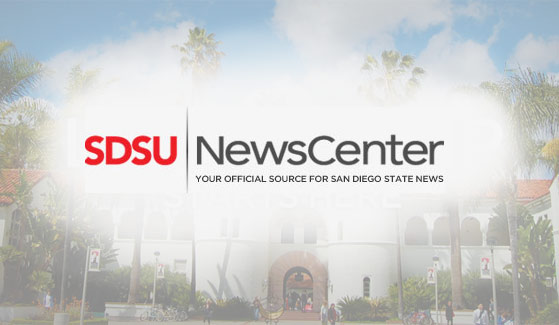SDSU Sustains Grant Funding at $144.4 Million for 2019-20
Funding from federal agencies increased, and many researchers stepped up to the challenge presented by the COVID-19 pandemic.

“I am proud of our highly accomplished researchers. They are resilient and tireless in their drive to make meaningful contributions to our community and the world.”
San Diego State University researchers received $144.4 million in grant funding for 2019-20, the fourth-highest in university history, sustaining support at close to the previous year’s levels. A record 1,251 proposals were submitted to more than 300 sponsors, and 758 awards were received by 307 investigators, indicating strong support, even during a global pandemic, for the SDSU research community. The total included a significant increase from two major federal agencies. The National Science Foundation (NSF) awarded a record $15.7 million to SDSU — an increase of 69.4% and $6.4 million over the previous year's awards. The National Institutes of Health awarded $31.9 million, up by 10% from last year, for a total of 89 awards, a 33% increase over the previous year.
“I am proud of our highly accomplished researchers. They are resilient and tireless in their drive to make meaningful contributions to our community and the world,” said SDSU President Adela de la Torre.
“Our research community has a strong history of leveraging resources to generate increasing levels of external support for research and creative activities,” de la Torre said. “Through the launch of our new strategic plan, we will see even more solutions adopted with the aim of making a difference in addressing critical needs for our communities and in service to the success of our students.”
SDSU’s research has always had a strong community engagement component which came to the forefront during the pandemic. When COVID-19 arrived stateside, SDSU faculty stepped up to the challenge in many ways, including answering a U.S. Department of Defense call to design low-cost, easy to assemble breathing devices for the critically ill; initiating a contact tracing program focused on the hardest hit underserved communities in San Diego County; and testing surfaces in public areas for reservoirs where the novel coronavirus may linger.
“I’d like to give kudos to our researchers who, despite the worldwide pandemic and its consequent shutdowns, disruptions, and restrictions, have continued this meaningful work to benefit our campus, regional and global communities,” said Stephen Welter, vice president for research. “It has always been my belief that it is the ambition, ingenuity, and passion that our researchers and staff have displayed over the years that has helped make SDSU so unique and successful.”
Twenty-three grants received in 2019-20 exceeded $1 million, with 13 of them garnering more than $2 million. NSF awarded two prestigious CAREER awards of nearly $1 million each to faculty, as well as 13 competitive graduate fellowships, and supported several collaborative research projects. NIH grants will support a wide range of research, from cancer to suicide prevention interventions for LGBTQ youth.
Research was sponsored by several other federal agencies, including NASA, the U.S Departments of Energy, Defense and Education and the National Institute on Drug Abuse. SDSU researchers also received funding from state agencies, and private and nonprofit entities. SDSU offered students a wide array of research opportunities, with an emphasis on developing a future pipeline of researchers from diverse, underrepresented communities. Last year, 430 students presented their research at the Student Research Symposium, a valuable venue to showcase graduate and undergraduate work, the culmination of countless hours of hard work in the lab and in the field.
Highly motivated faculty and student researchers traveled to far flung locations such as the Arctic, to explore the impact of climate change and greenhouse gas emissions; closer to home, they focused on using local creeks as outdoor labs to study wildfires, water quality, invasive species and emergency management. They discovered ways to make deep brain stimulation safer with carbon electrodes that fared better than metal electrodes when embedded in the brain; and studied migrant trauma and cancer care in the border region of Imperial Valley. Capping an eventful year, 20 faculty-led research projects were selected to advance through the SDSU Big Ideas selection process. Through the initiative, the university will attract transformative public and private funding while leveraging the distinctive strengths of faculty scholarship and research.



